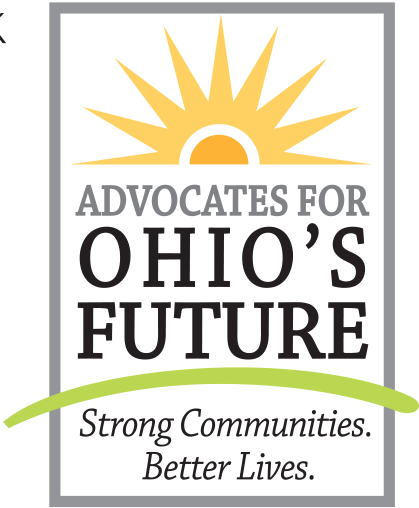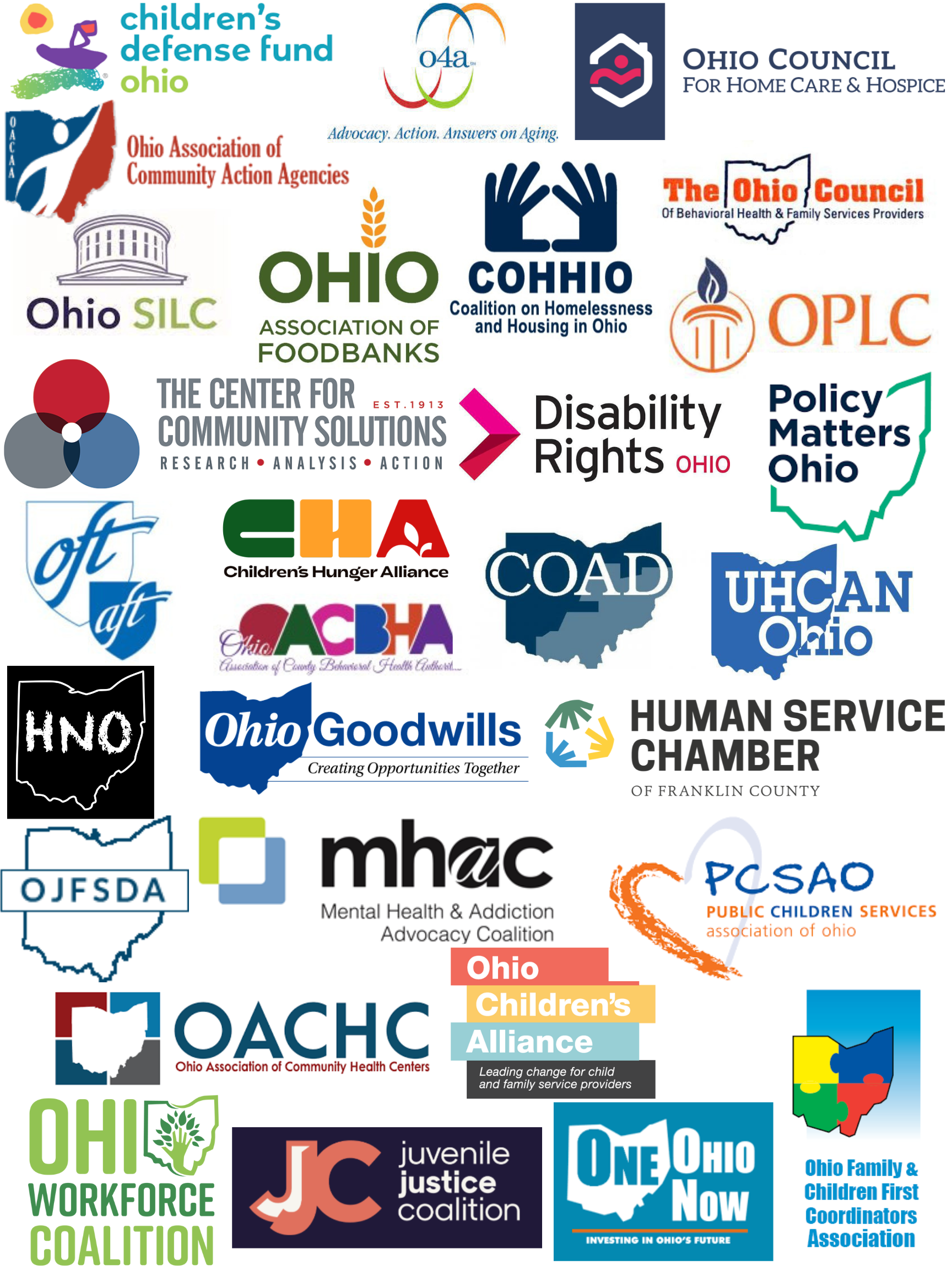Advocates for Ohio’s Future (AOF) is a nonprofit, nonpartisan coalition of over 500 state and local health and human services policy, advocacy and provider organizations that strive to strengthen families and communities through public funding for health, human services, and early care & education. We work to empower and support nonprofit organizations and the health and human service workforce in the critical work they do, especially as it relates to lifting up and caring for all Ohioans.
Today, hundreds of thousands of children, adults, and families struggle to afford food, rent, utilities, and other basic necessities. Currently, Ohio’s hunger relief network provides take-home groceries, meals, and personal care items to 1 million Ohioans each month, 1 in 4 Ohio renter households spend more than half their income on rent and utilities, and nearly 17 percent of Ohio’s children live in poverty. AOF is concerned that thousands of Ohioans who are already struggling to make ends meet will lose resources to keep food on the table and lose healthcare coverage as COVID era flexibilities and enhanced supports unwind. This is why we support public programs that provide economic security, help people get to work, support a strong recovery, and empower Ohio residents.
Equity should be an explicit consideration in constructing the budget. Laws and policies have institutionalized racism and bias against marginalized groups. Ohio should allocate resources and services to at-risk populations to ensure an individual’s well-being and success are not predictable by race, class, geography, language, gender, or other relevant social factors.
The upcoming state budget is an opportunity to invest in improving the quality of life of all Ohioans. AOF and our partner organizations support policies that build an Ohio where all people and families live healthy lives in quality communities with pathways to prosperity for all.
In 2023 AOF, in collaboration with partner organizations will focus our advocacy efforts to:
Ensure coverage protections and strengthen supportive services as enhanced COVID-era benefits and program flexibilities expire. AOF will continue to coordinate and help lead the work of the Ohio COVID Recovery Coalition to ensure state and local government entities, providers, community organizations and public program recipients are prepared for the expected widespread loss of health coverage and nutrition supports.
Maintain and expand Medicaid eligibility so all Ohioans get the health care and coverage they need. AOF will continue to advocate to ensure Ohioans seeking health care and mental health and addiction treatment can continue to access vital services. AOF will work with partner organizations to:
Expand general Medicaid eligibility up to 300% FPL for families and children
Allow for continuous coverage for children up to six years old
Convene a dedicated coalition of AOF partners, community organizations and business leaders to develop comprehensive strategies to address the benefits cliff and strengthen work and family supports across public programs. While developing a broader agenda to address the benefits cliff and promote work supports that help parents participate in the workforce, AOF will collaborate with partner organizations to:
Expand initial eligibility for publicly funded child care from 142% FPL to 200% FPL.
Increase the minimum benefit for SNAP for older adults without earned income to $50 per month.
Reward work and make a difference for low-income families by making the state Earned Income Tax Credit (EITC) fully refundable and creating a state-level family tax credit.
We also pledge to elevate and support the following policy proposals championed by our partner organizations:
Support and stabilize Ohio’s growing workforce and address rising costs by investing in affordable housing and easing food insecurity.
Maintain and expand behavioral health, aging and disability services, including home and community-based services, across all populations and systems and increase access to quality providers in all communities. Different rates and requirements for similar work result in competition for a small number of workers and an imbalance in the system. We support prioritizing efforts to retain and expand the direct care workforce and ensure parity across all systems.
Promote quality and equity for all students in K-12 education by fully funding the Ohio Fair School Funding Plan, encourage healthy school meals for all and increase access to wraparound services including physical and behavioral health care in schools.
Increase access to broadband to help all low-income families afford high-speed internet access and incentivize internet service providers to update and improve their networks in low-income areas so all Ohio families and businesses have the ability to participate in education, telehealth and Ohio’s economy.
To support the state’s intention to approach the budget with a focus on results and improved outcomes, clear and available data surrounding programs and investments must be accessible by the public to effectively evaluate the impact of taxpayer dollars. Transparency and opportunity for public input throughout the legislative process must be fortified to foster participation and policies that move Ohio forward.


